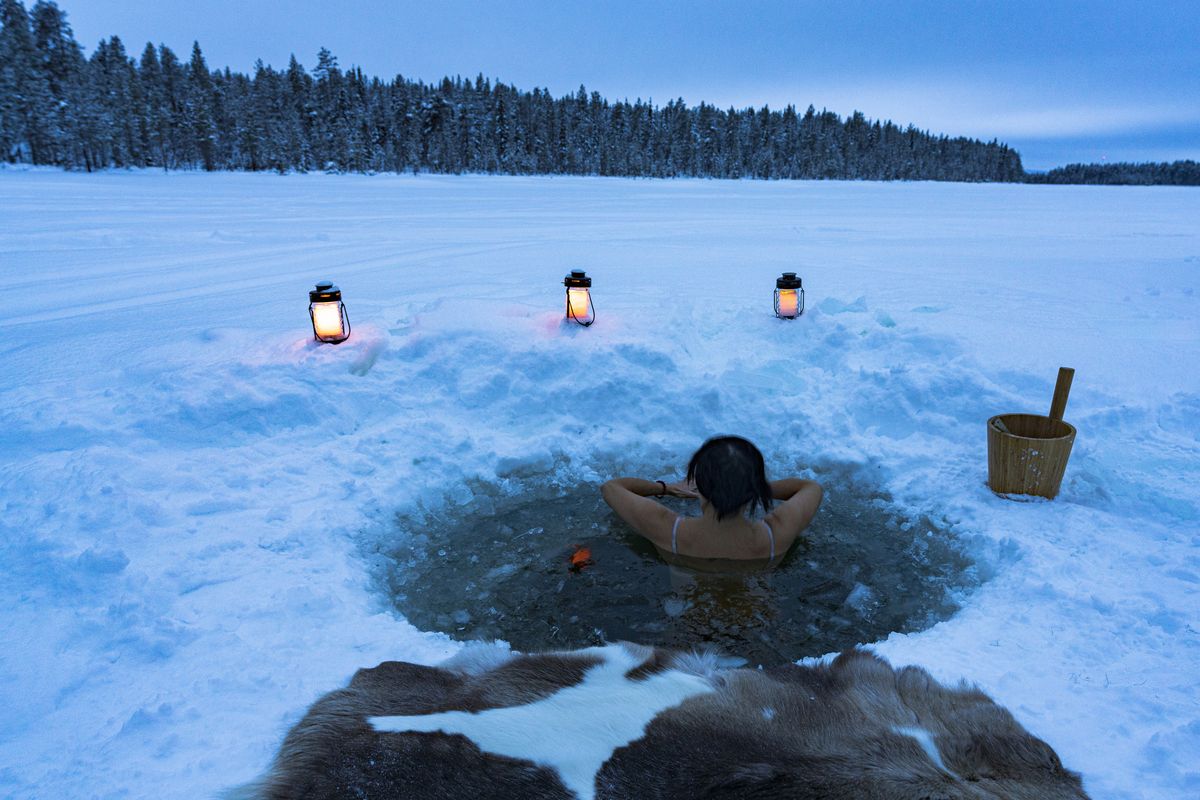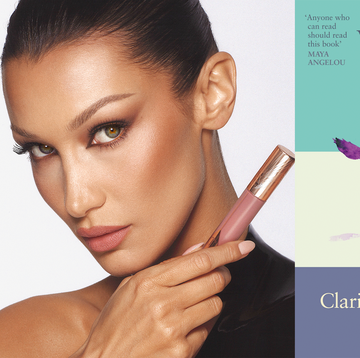Jump to:
If the water temperature in my shower isn’t so hot that it could cook an egg, I refuse to hop in. If you're like me, cold plunges, a common wellness and recovery practice, don't sound like a relaxing activity. However, studies show that cold plunges, also known as cold water immersion, are rich in physical and mental benefits. And if that isn’t enough to convert you, countless high-achievers credit their success to a combo platter of meditation and cold plunging.
Here, we explain everything you need to know about getting chilly for your health, from how it works to the benefits, and whether or not it’s worth taking the plunge.
What Is a Cold Plunge?
“A cold plunge is the act of submerging your body in cold water (59 degrees Fahrenheit or less) for an extended period of time. Cold plunges are an incredible tool for boosting the health of the body and mind,” says Jonathan Leary, Founder of Remedy Place, the membership-based health and wellness club beloved by celebs.
More From Harper's BAZAAR

There are many different ways to cold plunge including, but not limited to, a jump into the ocean, an ice bath, a cold shower, or a professional circulating cold tub. These cold tubs can often be found at luxury spas, fitness centers, and recovery centers. “While the benefits do range depending on the plunge style you take—all exposure is good for us to some degree,” says Frank D'Agostino, a fitness nutrition specialist.
What Are The Benefits of a Cold Plunge?
By decreasing your core body temperature, a cold plunge can deliver a wide range of benefits. Perhaps the most important is building mental resilience and discipline: consistent exposure to cold temperatures allows the mind to get comfortable in a state of discomfort, which will improve its ability to deal with other types of stress. “Teaching the body how to handle extremes, especially within our ice baths starts to teach the body and mind that you are in control," adds Leary. "Not only is there pure satisfaction in accomplishing something difficult, but the more you incorporate ice baths into your routine you will find that there are simple practical practices that put you back in control and inevitably teach you how to handle any stress better."
The physical benefits of cold plunging are abundant. Experts say cold water immersion can:
- decrease inflammation
- offer a huge rush of endorphins,
- spike dopamine
- improve sleep and mood
- reduce stress
- help remedy aches and pains
- boost injury recovery
- reduce swelling
- potentially increase testosterone
- promote lymphatic drainage
- regulate hormones
- accelerate metabolism
Cold exposure is also thought to have positive effects on the skin as cold water can constrict blood vessels and decrease inflammation, which can give the skin a temporarily more radiant appearance.
How Long Should You Cold Plunge?
Leary warns that there is such a thing as too much when it comes to cold water immersion, so you want to make sure that you stay under the point of diminishing returns. “At Remedy Place, we cap each plunge at siz minutes at 38 F degrees, but it depends on how cold the water is," he says. "At warmer temperatures, you can stay in for longer but really it all depends on your physical response at the moment.”
If you’ve never plunged before it's important to start with short periods of time (one to two minutes) and gradually increase as your body adapts to the cold. “Once someone starts to really shiver, that’s a strong indication that they have reached their limit for that specific plunge," adds Leary. "Please keep in mind your performance each day can change based on the other external demands on the body. For example, we say to our regulars if they have been out the night before drinking, the next day they might not be able to last as long or shivering might start to occur when usually it doesn’t." Remember to listen to your body and not let your ego get in the way—there’s no need to push yourself too hard if you start to feel uncomfortable.
Can You Cold Plunge Daily?
Yes, you can plunge daily, but D'Agostino suggests creating a routine beginning with three days per week for the first few weeks so you can take note of how your body feels as you introduce a new stimulus. “The latest research shows that 11 minutes a week of being fully submerged is ideal. This can be broken up in a number of ways. Personally, I try to do my ice baths every other day or two to three times per week,” says Leary.
If you find that cold plunging is starting to negatively impact your energy or mood, cut back. "Remember that ice baths are a lot for the body and it takes a lot of energy for your body to warm back up," Leary adds. "Just like you can overtrain with your workouts, the same goes with ice baths, just instead of working on your musculoskeletal system you are working on your thermoregulators.”
Who Should Stay Away
According to our experts, there are certain individuals who should avoid cold plunges or use caution when using them:
- Individuals with cardiovascular disease or hypertension
- Individuals with Reynaud's syndrome
- Individuals who are pregnant
- Individuals with high blood pressure, heart disease, or other circulatory problems
- Individuals who have low body temperature at baseline
- Individuals who have a pacemaker (unless they have any medical clearance and/or direct medical supervision)
Meet The Experts
Jonathan Leary, DCM, is the founder of Remedy Place and a globally sought-after health and wellness expert. He has a Doctorate from the Southern California University of Health Sciences in Chiropractic Medicine and Alternative Medicine and is also trained and certified in functional medicine.
Frank D'Agostino, NASM, is a fitness nutrition specialist, personal trainer, and founder of Hero X Health.













